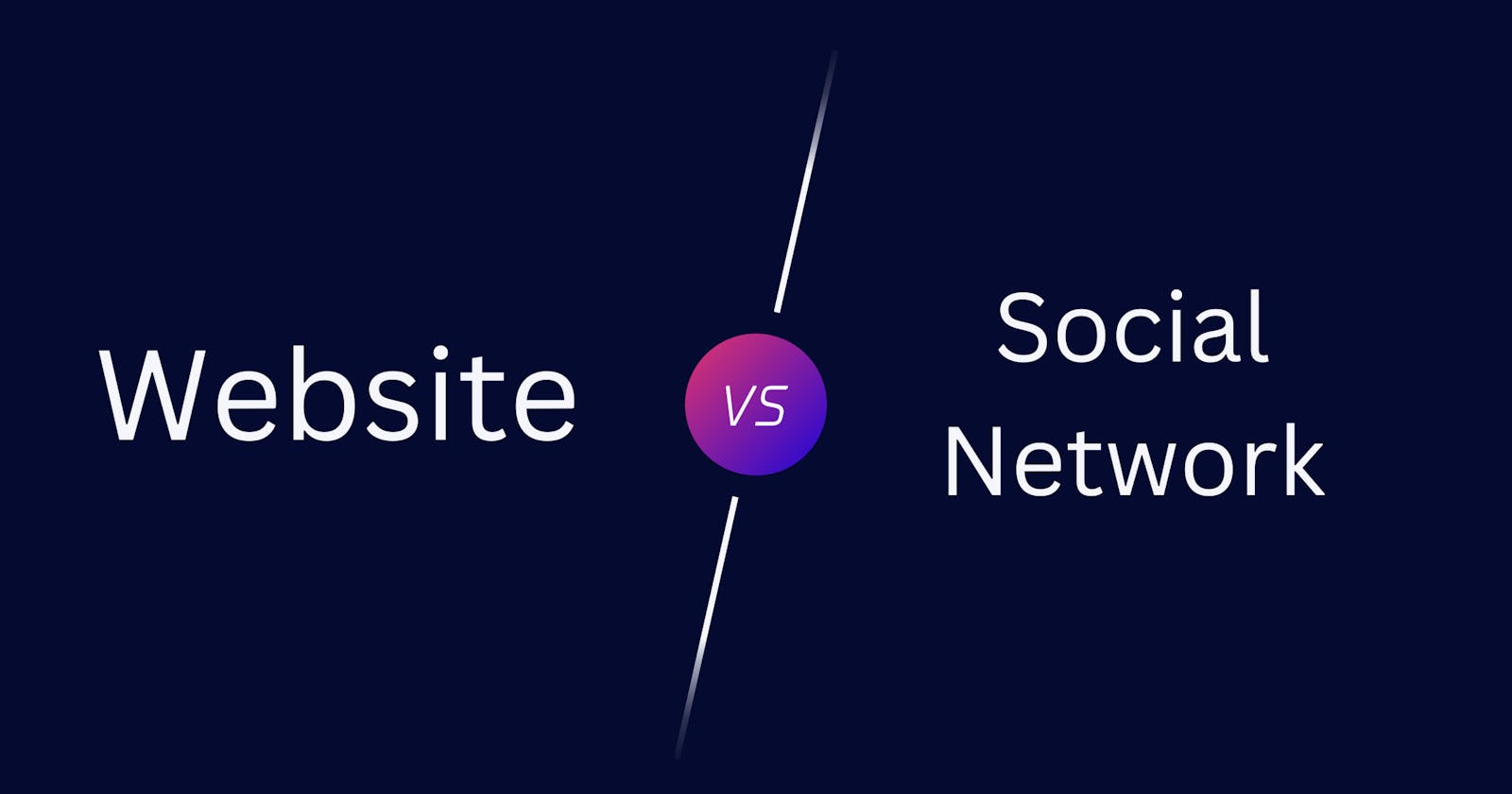Website vs Social Media, for businesses & brands. How are they different? Do I need both?
Over the past decade(or perhaps more), a lot has changed in the way we conduct business. Given the modern tools at your disposal and how simple it is to get things started, operating an internet business has most definitely replaced operating a brick-and-mortar firm, even though the former still has its place.
Nowadays, it's rare to meet someone who doesn't know what a website or social media is. In this instance, the latter is the one that joined the internet scene later because websites have been around for at least the last three decades. However, it is reasonable to say that over the past 15 years, social media sites like Facebook, Twitter, Instagram, and others have multiplied in popularity.
These social networking sites, which were initially developed to enable people to interact online, have undergone tremendous change, and they have swiftly emerged as the preferred place for people to network with others and do commercial activities that have a real influence on their ROI. Additionally, social networking sites include built-in technologies that enable businesses to directly sell their goods and services in addition to reaching a big audience.
You could have been persuaded after reading the foregoing that social networking sites have an advantage over standalone websites that need more focus and effort, however, this is untrue.
Here, I want to draw attention to a few of the benefits and drawbacks of both websites and social networking sites so that you may decide for yourself which approach is best for your business.
Advantages of Social Networking Sites
The fact that social networking services are free to use is by far their biggest advantage. No in development costs or hosting charges.
There are built-in templates on websites like Facebook and Twitter where you may publish any type of material, including text, photos, and videos. You save yourself a lot of time and effort in building these templates on your own, which are readily available.
Social media platforms are ideal for building an online community to which you can target relevant content as part of your initial sales funnel.
Disadvantages of Social Networking Sites
Due to the volume of data and information available on these platforms, which are free, you must make a big effort with your content in order to keep the audience's interest. To stand out among your competitors is a real challenge.
Despite the fact that there are many complex features accessible, there are instances when you feel there is little room for customization that you would otherwise like to make to suit your business use case.
Social media platforms are excellent for sharing material with new audiences that you could not otherwise reach, but they are still restricted to users of that social media network. Your options are limited in comparison to search engines like Google because of this.
Social media sites are typically not for sales, it is mostly about meeting prospects and generating leads.
The profile and content are owned by platform owners and there is a chance of information leakage.
When someone asks for more information about your business, referring them to your social account doesn’t give them the info they want to know about your services, credentials, pricing, packages, or even how to get in touch with you.
Advantages of a website
A website is where you have complete ownership and build anything from scratch.
Websites give you the opportunity to sell your company via SEO, copywriting, and branding.
Website is where the actual brand and credibility building takes place. They provide a professional platform that potential customers can come to for more information about you and your services/products.
While social media is great for capturing leads, social media platforms just don’t have a system where you can create a customized sales funnel to close sales like a website can.
Disadvantages of a website
You need to have the skill set to design and develop a website and this can be a costly affair at times.
Sometimes building websites can be costly just to develop and maintain them. You might incur additional hosting charges as well.
If SEO is part of your main strategy for incoming organic traffic, then you might have to constantly review and make changes to your website's content as Google's algorithm changes frequently.
I believe that in order to successfully harness the power of websites and social networks, you must find the ideal balance. The analogy that follows, in my opinion, best captures the combined strength of both.
"A website is comparable to inviting someone to your house or place of business, whereas social media is like attending a party and making new friends/prospects."

